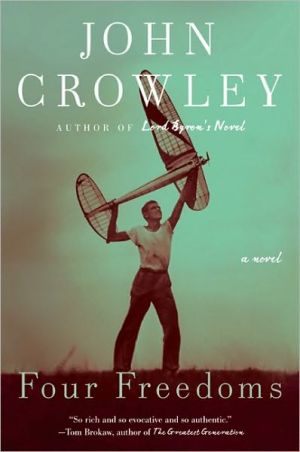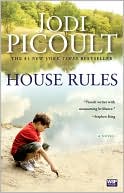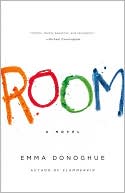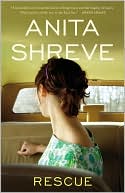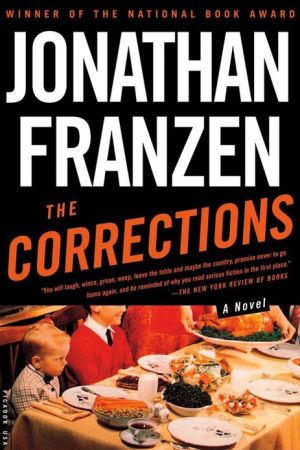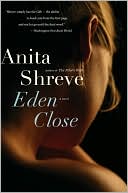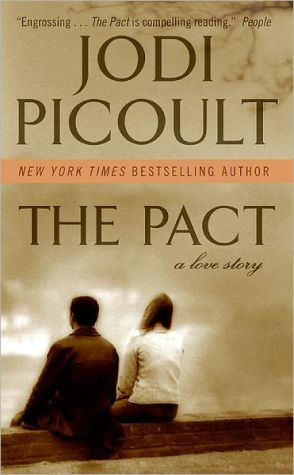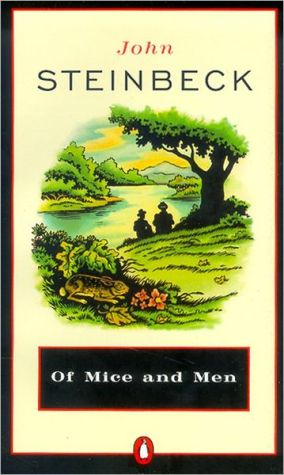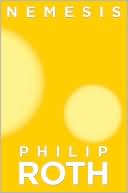Four Freedoms
In the early years of the 1940s, as the nation's young men ship off to combat, a city springs up, seemingly overnight in the fields of Oklahoma: the Van Damme airplane factory, a gargantuan complex dedicated to the construction of the necessary machinery of warfare. Laborers—mostly women—flock to this place, enticed by the opportunity to be something more than wife and homemaker. For Vi, fleeing a dying ranch; for Connie, following an unfaithful husband; for Diane, leaving behind the hot...
Search in google:
In the early years of the 1940s, as the nation's young men ship off to combat, a city springs up, seemingly overnight in the fields of Oklahoma: the Van Damme airplane factory, a gargantuan complex dedicated to the construction of the necessary machinery of warfare. Laborers—mostly women—flock to this place, enticed by the opportunity to be something more than wife and homemaker. For Vi, fleeing a dying ranch; for Connie, following an unfaithful husband; for Diane, leaving behind the hot music and soldier boys to pursue something different, adult, and real; their journeys will be liberating in ways they couldn't previously imagine, and it will lead each of them to Prosper Olander—disabled artist, forger, friend, lover, and the true heart and soul of the temporary city—who will change their lives in profound and unexpected ways.The Barnes & Noble ReviewIn the 1943 RKO Radio Pictures film Tender Comrade -- to the dismay of ardent fans, the flick is generally unavailable these days except as a bootleg -- Ginger Rogers plays a war bride who sets up communal housekeeping with three other women, amid the dire physically and morally challenging conditions on the WWII home front. With a script by Dalton Trumbo, the film is an equal mix of soap opera, utopian socialism, and shared sacrifice leading to mass consciousness-raising. (In fact, the socialistic aspects of the script would later be used as a bludgeon in the infamous HUAC hearings.) I have no doubt that novelist John Crowley, himself a screenwriter and well versed in the products of Hollywood's Golden Age, has watched, internalized, dissected, and mentally rejiggered Tender Comrade, as well as Dive Bomber (1941), This is the Army (1943), Since You Went Away (1944), Four Jills in a Jeep (1944), and any number of the other message-laden, heart-tugging, alternately bathetic and genuinely tragic propaganda films of this era. His novel Four Freedoms is too firmly implanted in this tradition to have sprung up spontaneously. Additionally, the comforting illusions provided by the cinema form an explicit thematic subtext in the book -- as how could they not, in any faithful literary re-creation of such a Hollywood-besotted time?
\ www.about.com"One gets the feeling that Crowley loves observing women because he captures them so precisely and so intimately....FOUR FREEDOMS goes back in time... bringing us stories filled with love, loss, integrity, and heart."\ \ \ \ \ Washington Post"Ultimately, the significance of Four Freedoms lies in its thoroughness, the sheer specificity. . . . The result is an accessible, painstakingly crafted work that offers many pleasures and rewards. It could be the novel that finally brings Crowley the wide attention he has long deserved."\ \ \ Booklist"Although nominally about life at an American aircraft factory during World War II, Crowley’s complex and subtle novel is much grander. . . . Four Freedoms is also a triumph of both research and imagination. . . . A wonderful novel that readers won’t soon forget."\ \ \ \ \ San Francisco Chronicle"Four Freedoms.perfectly captures an era—WWII America—when the chosen are overseas and the left-behind are granted a rare moment of possibility. Crowley’s extraordinary characters and the poignant, funny, disturbing ways they find to connect with one another make you wish this war would never end."\ \ \ \ \ New York Times Book Review"John Crowley is a virtuoso of metaphor, a peerless recreator of living moments, of small daily sublimities. And his latest novel, Four Freedoms, is in many ways his most unguarded and imaginative work."\ \ \ \ \ Tom Brokaw"Four Freedoms is so rich and so evocative and so authentic."\ \ \ \ \ Max ByrdJohn Crowley is a virtuoso of metaphor, a peerless recreator of living moments, of small daily sublimities. And his latest novel, Four Freedoms, is in many ways his most unguarded and imaginative work. But readers expecting fantasy or science fiction—Crowley is the author of the cult fantasy series Aegypt—should be warned. This new book is rooted firmly in the clear, knowable past; at times, it has the grainy, kinetic authenticity of an old newsreel…it's aglow with unforgettable characters…And it's brilliantly stitched together by motifs of chrysalises and movies and by a joyous abundance of metaphor and simile\ —The New York Times\ \ \ \ \ Bill SheehanUltimately, the significance of "Four Freedoms" lies in its thoroughness, the sheer specificity with which Crowley has imagined this one small corner of an imperiled planet. Whether he's describing a women's softball game, summarizing the early history of flight or elaborating on the proper method of forging ration coupons, he always makes the reader feel at home…The result is an accessible, painstakingly crafted work that offers many pleasures and rewards. It could be the novel that finally brings Crowley the wide attention he has long deserved.\ —The Washington Post\ \ \ \ \ Library JournalIn his 11th novel, acclaimed author Crowley (Daemonomania) presents a work of historical fiction about several people working at an Oklahoma aviation factory during World War II. The company, run by two farsighted brothers, is attempting to produce a bomber plane extraordinaire. With the majority of able-bodied men away fighting, it is a disabled man, Prosper Olander, and several women working at the plant whose intimate lives become the story's focus. Prosper's various liaisons give readers a glimpse into all the characters' backgrounds and experiences and show what led them to employment at the plant. Crowley interweaves scenes showing how the workers as a whole bond together in their plant-constructed housing and dance halls. VERDICT While the novel's backdrop is a 1940s wartime plant, described in some detail, the book doesn't seem to hit its stride until it begins examining specific characters in depth. The author's strength is in making their situations and their dialog come alive. Recommended for all readers of historical fiction.—M. Neville, Trenton P.L., NJ\ \ —M. Neville\ \ \ \ \ Kirkus ReviewsThe American home front during World War II serves as metaphor for a fallen world seeking renewal in the latest from Crowley (Lord Byron's Novel, 2005, etc.). The action takes place in an aircraft factory in formerly oil-rich Ponca City, Okla.-and in the memories of several brilliantly realized characters. These include Dutch-American siblings Henry and Julius Van Damme, whose company has been entrusted with mass-producing America's largest warplane; disabled plant worker Prosper Olander, whose roots lie in an unidentified northern city and a confused family history; several splendid women with whom Prosper forges close relationships; and idealistic Pancho Notzing, a self-styled philosopher who preaches a relativistic gospel embracing imperfection and diversity. In a tricky narrative that weaves in and out of the novel's present (1942-5) and lavishly detailed flashbacks to the characters' earlier lives, Crowley creates a fascinating microcosm: an insular, though globally inspired and involved alternative world that's as radical an invention as the bifurcated world of his classic fantasy Little, Big (1984). The theme of an embattled idyllic America suddenly vulnerable to threats to the "four freedoms"(of speech and worship, from want and fear) enumerated in FDR's third State of the Union address, is spelled out in the stories of Prosper's sufferings growing up with a curved spine; his first lover Vi Harbison's exuberant experiences as a softball pitcher; her successor Connie Wrobleski's unhappy marriage and sexual renewal; and, just before a climactic occurrence wipes Ponca City's slate clean, the intellectual road taken by Pancho en route to a fructifying vision of a "Harmonious City"that incarnates the ideal of full equality for all. Crowley further enriches his text with complex allusions to classical mythology and Shakespearean drama; Prosper evokes both The Tempest's hero-sage and the wounded Fisher King whose sacrifice redeems a stricken Waste Land. More rich, satisfying food for thought from one of America's most imaginative and accomplished novelists.\ \ \ \ \ Booklist (starred review)“Although nominally about life at an American aircraft factory during World War II, Crowley’s complex and subtle novel is much grander. . . . Four Freedoms is also a triumph of both research and imagination. . . . A wonderful novel that readers won’t soon forget.”\ \ \ \ \ about.com“One gets the feeling that Crowley loves observing women because he captures them so precisely and so intimately....FOUR FREEDOMS goes back in time... bringing us stories filled with love, loss, integrity, and heart.”\ \ \ \ \ The Barnes & Noble ReviewIn the 1943 RKO Radio Pictures film Tender Comrade -- to the dismay of ardent fans, the flick is generally unavailable these days except as a bootleg -- Ginger Rogers plays a war bride who sets up communal housekeeping with three other women, amid the dire physically and morally challenging conditions on the WWII home front. With a script by Dalton Trumbo, the film is an equal mix of soap opera, utopian socialism, and shared sacrifice leading to mass consciousness-raising. (In fact, the socialistic aspects of the script would later be used as a bludgeon in the infamous HUAC hearings.) \ I have no doubt that novelist John Crowley, himself a screenwriter and well versed in the products of Hollywood's Golden Age, has watched, internalized, dissected, and mentally rejiggered Tender Comrade, as well as Dive Bomber (1941), This is the Army (1943), Since You Went Away (1944), Four Jills in a Jeep (1944), and any number of the other message-laden, heart-tugging, alternately bathetic and genuinely tragic propaganda films of this era. His novel Four Freedoms is too firmly implanted in this tradition to have sprung up spontaneously. Additionally, the comforting illusions provided by the cinema form an explicit thematic subtext in the book -- as how could they not, in any faithful literary re-creation of such a Hollywood-besotted time?\ Forsaking the magical realism and urban fantasy of books such as Little, Big for pure limpid naturalism (although certain mild absurdities do propel the aircraft of the novel toward tentative gonzo liftoff at points), Crowley has fashioned as pure, potent, and powerful a vehicle for imaginatively re-attaining this vanished, seminal era of the American Dream as any book of recent memory. Any vestige of 21st-century attitudes and beliefs, any contemning or approving or disbelieving hindsight, any wish-fulfillment time-travel whimsy have all been ruthlessly eradicated, in favor of fashioning a vibrant, subtly research-rich, high-resolution simulation of the period -- a virtual-reality chamber of sorts, where the reader can experience Crowley's empathetic and compassionate view of the human condition via a cast of lively characters enacting the topical yet eternal dilemmas of their day.\ The strange attractor which draws all the personages of Four Freedoms together, the inspired McGuffin that allows Crowley to convincingly assemble his motley crew in a pressure-cooker environment, is the creation of a warplane ironically named the Pax. Headed by two eccentric brothers who conjointly summon up the iconic Howard Hughes, the Van Damme Aero Company, having landed a big defense contract and outgrown its California facilities, erects a sprawling new plant and ambient town in Ponca City, Oklahoma. To this dusty, shoddy, adventitious industrial metropolis dubbed Henryville are lured the desperate, the eager, the curious, the blasé, all seeking wages and a home in varying proportionate degrees. Male or female, hale and hearty or crippled, patriots or subversives, the workers pile in, providing a yeasty cross-section of the American citizenry.\ We meet Horace Offen, a glib, cynical publicist always hoping for a revelation of some ideal he can cherish; Bunce and Connie Wrobleski, a feuding married couple who seek to maintain the love that originally drew them together; Vi Harbison, an ex-farm girl who discovers in herself a capacity for sports and risk and adventure; Sal Maas, a midget who once performed along with others of her stature as the public face of a famed newspaper strip called the "Teenie Weenies"; Diane Nunez, whose infidelity takes a surprising turn; and Pancho Notzing, former fabric salesman and "bestopian" dreamer.\ But central to the narrative is one young man, Prosper Olander. This book is truly his story, a depiction of how someone who might otherwise have been caged by circumstances comes to experience freedom in a time of tumult, when the usual structures of social control and status come tumbling down. We will watch Prosper grow from earliest childhood to a curiously self-assured yet oddly flawed manhood, and his voyage will encapsulate the whole topsy-turvy period.\ (And in fact Crowley structures the intertwining narratives of all his cast as an oscillating flow of back-story and real-time passages, with continual, unpredictable movement from past to present and even into minimally adumbrated flash-forwarded futures. I would estimate that the real-time narrative actually constitutes only about a third of the wordage of this book, and this relative scanting of Henryville action in favor of the formative years of the protagonists is arguably the novel's one flaw. Life in Henryville is so fascinating that we demand more than we actually receive.)\ Prosper was born with spinal troubles, and a botched ameliorative operation during childhood left him with useless legs. But even as a "cripple," Prosper possesses an indomitable optimism and sanguine outlook on life that sees him through any difficulties. Dubbed "Candide" by his pal Pancho at one point, Prosper demurs. And yet Crowley does endow his hero and his course through life with some of that same unquenchable naiveté and faith -- only in Crowley's universe, such a Weltanschauung is rewarded more often than not.\ Surely the most radical aspect of Prosper's life is his record of sexual conquests. He has relations variously with Vi, Connie, and Diane in Henryville, and other lovers from his past crop up. In a milieu where men are at a premium, Prosper radiates not just sheer masculine availability but also a sincere empathy toward all things feminine that is erotically alluring. If at times he exhibits typical male selfishness and ego, more often than not he is just what the various women in his life need at that moment of their engagement. And Crowley's forthright yet lyrical depictions of the unique mechanics of Prosper's couplings bring the requisite carnal heat to the tale.\ Prosper's acceptance by the community of Henryville -- as fellow worker and sexual peer and adviser and leisure-time comrade -- form the author's prime illustration of how the deracinated and desperate era encouraged experimentation and a closer approximation of Roosevelt's famous "four freedoms" (later idealized by Norman Rockwell's quartet of paintings) than more settled and regulated times allowed. Dreams supplemented what reality could not provide, and sometimes dreams even came true.\ The evocation of the dense cultural matrix surrounding Prosper's adventures constitutes the other majestic accomplishment of this book. With sensory richness and perfect attention to the brand names, beliefs, and bywords of 1944, Crowley plants the reader firmly in this bygone foreign country that was once America. Himself born too late to know this period firsthand, Crowley has submerged himself in the documents and artifacts of the era until he has achieved a complete intuitive sympathy with and vision of wartime America, which he then presents in prose with just the right mix of heft and delicacy. The reader will be seduced into hearing big bands playing and the Pax roaring overhead on its test flights, into feeling the hot sheets of an Oklahoma summer and smelling the astringent hospital ward of Prosper's rehabilitation.\ Like Thomas Pynchon and Kim Deitch, John Crowley has a fondness and affection for the mythic past of America. And like these other creators, he is able to see past the myths into the underlying humanity -- tawdry and romantic, standing in the gutter and looking at the stars. --Paul DiFilippo\ Author of several acclaimed novels and story collections, including Fractal Paisleys, Little Doors, and Neutrino Drag, Paul DiFilippo was nominated for a Sturgeon Award, a Hugo Award, and a World Fantasy Award -- all in a single year. William Gibson has called his work "spooky, haunting, and hilarious." His reviews have appeared in The Washington Post, Science Fiction Weekly, Asimov's Magazine, and The San Francisco Chronicle.\ \ \
